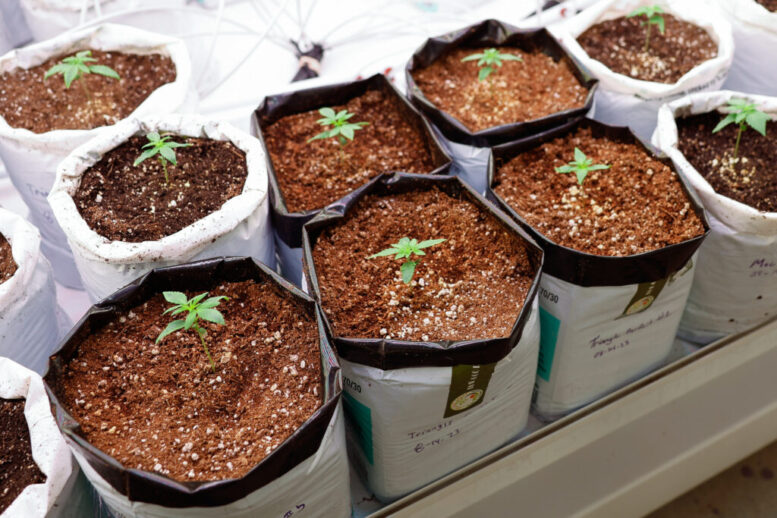BY MEGAN HENRY
Ohio’s marijuana law goes into effect Thursday under Issue 2 — which Ohioans passed with 57% of the vote.
But a bipartisan majority in the Ohio Senate passed a bill Wednesday with various modifications. The bill now heads to the Ohio House next week, where it would require passage before it would go to Ohio Gov. Mike DeWine’s desk for his signature.
Sen. Rob McColley, R-Napoleon, introduced proposed marijuana law changes to House Bill 86 on Monday. However, many of the changes that were introduced earlier this week were amended in a substitute bill that the Senate Government Oversight Committee approved Wednesday afternoon.
HB 86 — introduced earlier this year by rep. Jeff LaRe, R-Violet Twp., — would revise the state’s liquor control laws and passed the Ohio House in the summer with little opposition.
Two Senators voted against SB 86 during Wednesday’s Senate Session — Republican Sen. Niraj Antani and Democratic Sen. Catherine Ingram.
What is in HB 86?
Under Issue 2, people 21 and up can grow six plants per person with 12 plants per residence. But the bill limits it to six plants per household. Home grow had previously been eliminated earlier week, but was brought back in the substitute bill.
“That’s plenty for individual use,” Ohio Senate President Matt Huffman told reporters. “So on that particular issue, we think it’s pretty reasonable.”
Issue 2’s language had a 10% tax at the point of sale for each transaction. The bill would change the tax rate to 15% and eliminate the cultivators tax that was proposed earlier this week. A higher tax rate means a higher price for consumers.
“We acknowledge that the price point for this needs to be at the very least competitive with what might be on the black market,” McColley said.
The bill would also allow for local governments and local counties to levy an additional tax on top of the marijuana excise tax of 3%.
There would also be automatic expungements for those with possession amount of 2.5 ounces or less.
“There have been a number of individuals who have been convicted of possession of marijuana for what would be now legal possession,” McColley said.
Ohioans could be able to buy recreational use marijuana sooner under this bill. Originally, the dispensary sales for adult use marijuana were going to take effect in nine months. But, under the Senate bill, Ohioans 21 and older could go to a dispensary and buy recreational product immediately.
“We felt it was important to allow for immediate use because that’s a protection against the black market,” McColley said. “It’s frankly also a way to help Ohioans who voted for this allow to have safe, reliable access earlier than later.”
Possession limits would remain the same with 2.5 ounces and the THC levels would stay the same at 35% for plant material and reduce it from 90% to 50% for extracts. The number of dispensaries allowed at once would also remain at 350.
There is no emergency clause in the bill, meaning it would take effect 90 days after DeWine signs the bill into law.
Democratic Senate Minority Leader Nickie Antonio of Lakewood applauded the bill’s passage in a release Wednesday evening.
“The people of Ohio said loud and clear that they want legal, safe and accessible marijuana. Our caucus worked together to ensure that the voice of the people was reflected in the changes made to the bill, including expungement, preserving home grow and funding for our local communities and mental health,” she said.
Issue 2 created five funds in the state treasury: the adult use tax fund, the cannabis social equity and jobs fund, the host community cannabis fund, the substance abuse and addiction fund, and the division of cannabis control and tax commissioner fund.
This is how the revenue funds would be distributed under SB 86:
- 28% to the county jail construction fund.
- 19% to the Department of Public Safety law enforcement training fund, or 16% if the marijuana expungement fund has ceased to exist.
- 14% to the Attorney General law enforcement training fund.
- 11% to the substance abuse, treatment, and prevention fund, or 9% if the marijuana expungement fund has ceased to exist.
- 9% to the 988 Suicide & Crisis Lifeline fund.
- 5% to the marijuana receipts drug law enforcement fund.
- 5% to the marijuana expungement fund.
- 5% to the safe driver training fund.
- 4% to the Ohio Investigative Unit Pperations fund.
- 3% to the Division of Marijuana Control Pperations fund.
- 2% to the marijuana poison control fund.
Gov. DeWine urges passing of SB 86
DeWine called a press conference Wednesday night, before the Senate Session reconvene, to urge passage of the bill as soon as possible so he can sign it into law.
“Without the enactment of this bill, we will have the following situation: While it will be legal for Ohio citizens to possess marijuana, there will be no place for them to legally buy it,” DeWine said. “This bill deals with this and deal with it by speeding up the time when adults will be able to produce recreational marijuana legally, thus reducing the opportunity for the black market.”
He urges the House to pass the bill “right away and to send it to me for my signature,” DeWine said.
Also from Ohio Capital Journal:
Ohio House Higher Education Committee votes to pass massive overhaul bill
A massive bill that would upend Ohio colleges and universities passed by a 8-7 vote in the House Higher Education Committee Wednesday morning.
Senate Bill 83, which passed in the Senate earlier this year, now awaits further consideration in the House. However, Ohio House Speaker Jason Stephens R-Kitts Hill, said last week the bill isn’t likely to pass in the House, saying “it doesn’t have the votes.”
Republican Reps. Rep. Gail Pavliga and Justin Pizzulli joined their democrat committee members in voting against the bill.
State Sen. Jerry Cirino, R-Kirtland, introduced SB 83 earlier this year — which is currently in its 11th version.
“I’m delighted with the outcome,” he said to reporters Wednesday afternoon. “It was closer than I would like it to have been, but we’re delighted with it. And I think it speaks highly of the fact that people realize that we need some of this reform in the state of Ohio and higher education.”
Cirino said he hopes to talk to Stephens about bringing the bill to the House floor.
“I’m gonna make myself very available to help explain the bill and justify it and answer any questions that he might have,” Cirino said.
“If (Stephens) decides not to bring it to the floor after passing it out of his own committee, with strong support from his chairman of the committee, that again is his prerogative,” he said. “I will try to persuade him to do otherwise. If he elects not to do that, then we will wait for another propitious time to bring this forward.” READ MORE
Misfire: Ohio House adjourns without taking up Second Amendment sanctuary bill
The Ohio House balked Wednesday on a measure that would excise any reference to federal gun statutes in state law. House Speaker Jason Stephens abruptly gaveled out of session without taking up the proposal.
Supporters claim the measure, known as the Second Amendment Preservation Act, or SAPA, is only meant to keep federal authorities from co-opting state and local agencies. In truth it goes well beyond that. Instead of simply defending state prerogatives, it creates legal mechanisms to punish current and past enforcement of gun laws the backers oppose.
Those penalties are harsh enough that prosecutors and police chiefs contend the proposal would discourage and potentially preclude interagency partnerships that are crucial to investigating gun, drug and trafficking cases.
Last minute changes prompted arguments from Democrats that the measure wasn’t ready for the House floor. The sudden delay gives some credence to those complaints.
Speaker Stephens did not answer questions after Wednesday’s session, but the House meets again next Wednesday, Dec. 13. The chamber also has an “if needed” session scheduled for Tuesday. READ MORE





